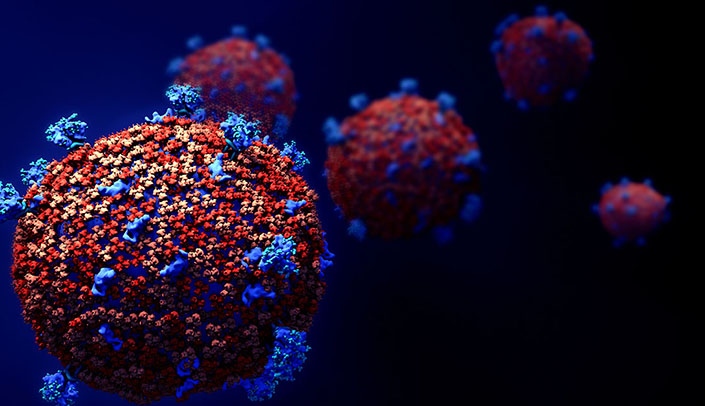Even as members of the UNMC and Nebraska Medicine community have an opportunity to become vaccinated, the campus will continue to emphasize the need to wear masks, social distance and wash hands.
The emphasis on social distancing becomes even more important with the arrival of the Super Bowl, traditionally a time for friends and families to gather or hold parties.
“Vaccines are a step in the right direction, but now is not the time to let up on the simple public health measures that we know work,” said Ted Cieslak, MD, interim executive director for health security. “Actually, now is the time to double down so the virus does not re-establish a foothold across our communities.
“Researchers still do not know if the COVID-19 vaccines prevent shedding of virus,” Dr. Cieslak said. “As a result, a vaccinated individual may be protected from the disease, but still be able to spread it to others (even if they don’t get sick themselves). Large gatherings and parties still should be avoided — social distancing measures should be maintained.”
For those who will be attending parties, including Super Bowl parties, the Centers for Disease Control and Prevention (CDC) has offered guidance for both large and small gatherings — but note, Dr. Cieslak said, the CDC director specifically recommends limiting your Super Bowl party to individuals within your household.
On campus, UNMC and Nebraska Medicine will continue to ask faculty, staff and students to adhere to the campus safety expectations that have been in place for months. (See the seven fundamentals of campus COVID-19 control.) Campus leaders, meanwhile, are planning for a safe return to a new normal with vibrant in-person teaching, research, learning and working operations beginning with the fall 2021 semester.
Until then, however, public health experts remind us all — even individuals who have had the opportunity to receive vaccine — that:
- Not everyone we interact with has been (or will choose to be) vaccinated — even members within households will be on different vaccination timetables and it may take months to fully vaccinate entire counties and states.
- Researchers continue to investigate how new variants of the coronavirus that causes COVID-19 (including B.1.1.7, first identified in the United Kingdom; 501Y.V2 from South Africa; and P.1, which emerged from Brazil) respond to vaccines. Viruses mutate all the time and continued vigilance is necessary.
- Even after receiving vaccine, it takes a few weeks for the body to build protection against the virus that causes COVID-19. That means it’s possible a person could be infected with the virus just before or just after vaccination and still get sick.
- The medical center is part of a larger community and must continue to practice (and model for others) the simple nonpharmaceutical interventions that reduce the spread of COVID-19 and help keep our communities safe.
